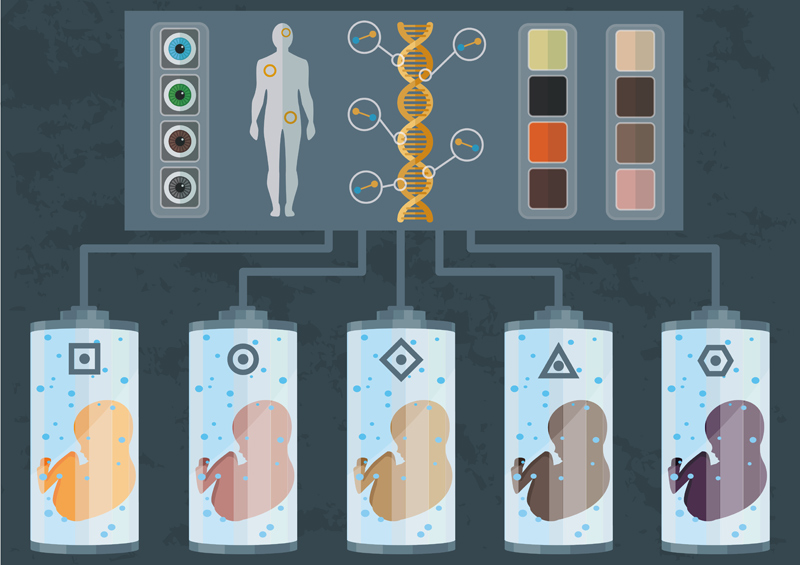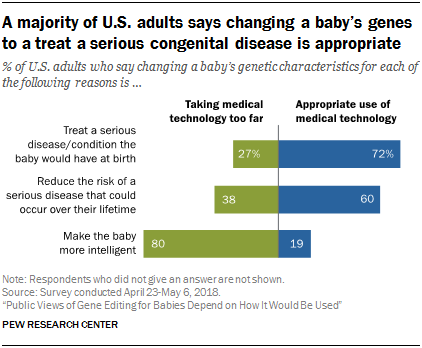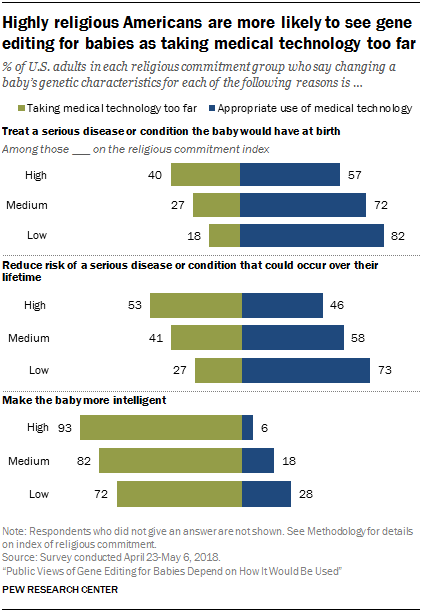
3rd August 2018 Public views of gene editing for babies depend on how it would be used Americans are more likely to anticipate negative than positive effects from widespread use of gene-editing technology, according to the Pew Research Center.
A majority of Americans support the idea of using gene editing with the goal of delivering direct health benefits for babies. At the same time, a majority also considers the use of gene editing to boost a baby's intelligence as something that takes technology "too far," according to a new study released by the Pew Research Center. Some 72% of Americans say that changing an unborn baby's genetic characteristics to treat a serious disease or condition that the baby would have at birth is an appropriate use of medical technology, according to the survey of 2,537 U.S. adults conducted from 23rd April-6th May 2018. A smaller share of Americans say gene editing to reduce a baby's risk of developing a serious disease or condition over their lifetime is appropriate (60% say this would be appropriate, and 38% say it would be taking medical technology too far). But, when the survey asked about using the same technology to make a baby more intelligent, just 19% of Americans say it would be appropriate.
When considering the possibility that development of gene editing would entail testing on human embryos, only one third of Americans (33%) say this would be appropriate while about two thirds (65%) say this would be taking medical technology too far. There are large differences in acceptance of gene editing between the highly religious and less religious. Americans with high levels of religious commitment are closely divided over whether it is appropriate to use gene editing to reduce a baby's risk of disease later in life; 46% say this is appropriate while 53% consider it taking technology too far. In contrast, 73% of those low in religious commitment say gene editing to reduce a baby's risk of developing a serious disease or condition over their lifetime is an appropriate use of medical technology. As people think about a future with possible widespread use of gene editing to change a baby's genetic make-up, the survey finds more anticipate negative than positive effects on society. Specifically, 58% believe gene editing will very likely lead to increased inequality because it will only be available to the wealthy. Some 54% of Americans anticipate a slippery slope, saying it's very likely that "even if gene editing is used appropriately in some cases, others will use these techniques in ways that are morally unacceptable." In contrast, only 18% of U.S. adults consider it very likely that development of gene editing techniques will pave the way for new medical advances that benefit society as a whole.
Among other findings: Men are more accepting than women of using gene editing to change a baby's genetic makeup:
Americans with high levels of science knowledge are more likely to view gene editing positively:
Comments »
If you enjoyed this article, please consider sharing it:
|









